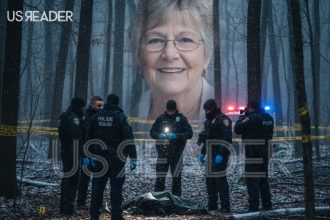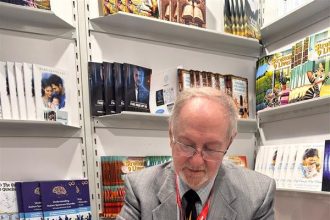At a time when noise drowns out nuance, and feelings are rushed past rather than felt, Charissa Ong Ty’s Midnight Monologues stands as a striking reclamation of inner life. Through poetry and short fiction woven with fearless sincerity, this Number #01 best-seller ushers readers into a world where introspection is not just welcomed, but celebrated – an intimate landscape shaped by honesty, ache, and quiet resilience.
The soulful writing does not speak to you from a distance; it leans in close. Charissa’s poems are compact yet heart-piercing, delivered in delicate, musical rhythm that echoes long after the page is turned. Seemingly light, but in actuality each piece is carved from emotions relived, processed, and then distilled into lines that feel both simple and devastating. That balance – accessible but profound – is the book’s quiet magic.
Midnight Monologues is divided into four distinct parts: LOST, FOUND, HOPE, and Short Stories. Each section serves as a chapter in the overarching narrative of self-discovery and emotional exploration. The structure of the book takes readers on a beautiful journey alongside the author, experiencing the ebb and flow of life’s trials and triumphs.
The opening section, LOST, sets the tone for the collection. Here, Ong delves into the depths of heartbreak and the feeling of being adrift in a world that often feels overwhelming. The poems resonate with anyone who has ever lost something, capturing the essence of vulnerability as well as the search for meaning amidst chaos. Poems like Leave, Diminishing, Gravity, and Ropes unravel the delicate negotiations of letting go, wanting more, and learning how love can bruise as it binds.
Her minimalist style, which she calls Diminishing Poetry, often using cascading repetitions, allows the unspoken to resonate louder than what is written. A line as small as ‘Try loving’ becomes a quiet implosion of meaning. A poem as short as Gravity twists heartbreak into clever wordplay. And pieces like The Heart Does Not Always Win reveal the author’s ability to thread imagery and vulnerability seamlessly – painting emotions that feel oddly familiar, even to those who rarely articulate them. The poems are intimate without sounding like a confessional. The pieces are universal, but maintain their specificity. They show us that ‘lost’ is not a single moment but an emotional territory. It is something we inhabit before we learn how to move through it.
The narrative softly progresses into the FOUND section, and a subtle shift occurs. This part is characterized by a sense of awakening and rediscovery. Ong’s words become a balm for the afflicted soul, offering a glimmer of hope akin to a warm hug. It is a hopeful emergence into new love, soft healing, and rediscovered strength. The poems now glow with the tenderness of second chances – not just with someone new, but with one’s own self. In pieces like Then You Happened, Magic Mirror, and You Are My Home, Charissa invites the reader to experience the relief that follows the seasons of confusion – the quiet miracle of being valued. Readers will find themselves nodding in agreement as they encounter verses that speak of the universal journey of healing and self-acceptance.
In the final poetry section, HOPE, Ong intertwines themes of aspiration and personal growth, broadening the emotional landscape. Here, the poems reach beyond romantic relationships to reflect on themes of self-worth, courage, growth, and the fragile pursuit of happiness. It is a gentle reminder to the weary soul that hope is not naïve; it is deliberate. Poems like Happiness, Inner Voice, and Lick Your Wounds deliver wisdom in deceptively simple lines. Her voice becomes a guiding force, encouraging the reader to embrace their dreams. It is a celebration of the human spirit’s capacity to rise above adversity even after experiencing the worst storms. It gently reminds us that transformation is possible even when we’ve forgotten how to begin.
The final part of the collection, Short Stories, displays a departure from the poetry that precedes it. And while the poetry is undoubtedly the book’s beating heart, Charissa’s short stories showcase her ability to shift genres without losing emotional clarity. She seamlessly moves from folklore to sci-fi, from fables to dark humor and from allegories to futuristic romance – each narrative proudly carrying her signature introspective undertone. The stories show us snippets of diverse characters all grappling with their own highs and lows. Ong’s storytelling prowess shines through as she crafts relatable tales that resonate deeply.
In one tale, she reimagines myths with childlike wonder and moral complexity. Another story sees her transport readers into a cosmic love story that is rich with sacrifice, exile, and existential ache. She writes of little boys and white sheep, actors in filming crews, portrait painters in ancient China, and intergalactic unions between galaxies – settings that are so different outwardly yet at the root they all ask a question that is deeply human: What do we hope for? What do we wish to change? What do we fear? Her stories remind us that fiction sometimes mirrors truths, especially those that we are hesitant to confront.
One of the most memorable aspects of Midnight Monologues is Ong’s lyrical writing style. Her words flow effortlessly, creating rhythms that draw the reader in. Even poems penned in stark simplicity carry a harmony and pulse. At times concealing dark humor, at times expressing clever wordplay, or a youthful boldness. Charissa knows when to cut deep and when to let the moment breathe.
The imagery she employs is vivid and evocative, painting pictures that delight the mind. Each poem and story is a testament to her ability to capture the essence of raw human emotion, making the collection truly immersive.
The book dares you to confront your fears, embrace your vulnerabilities, and ultimately find your voice. Through her words, Ong empowers readers to embark on their own journeys of self-discovery and self-actualization. The book feels like a conversation – gentle, honest, and private. She writes with the vulnerability of someone speaking at 2 a.m. to the person who will understand. And in that simple, effortless approachability lies her strength.
Whether you are nursing an unspoken wound, stepping into a new beginning, or learning how to hope again, Midnight Monologues offers a safe place to land. Ong’s words remind us that feeling hurt is natural and human, that healing is not linear, and love is not simple.
This masterfully written collection does not pretend to solve the heart. It simply holds it – with care and thought, and shines just enough light to guide you back to the path you wandered away from.











